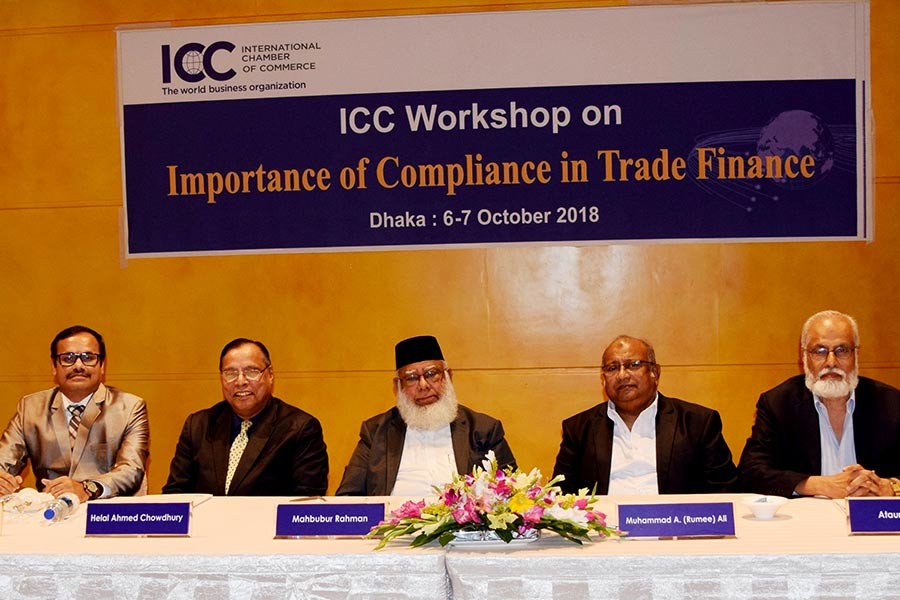Non-performing loans (NPLs) is creating an impact on capital adequacy of banks, specially the eight state-owned commercial and specialised ones.
International Chamber of Commerce (ICC) – Bangladesh President Mahbubur Rahman came up with the statement on Sunday.
Mahbubur Rahman was addressing the closing ceremony of ICC workshop on Importance of Compliance in Trade Finance at a city hotel, said a press release.
The ICC Bangladesh president mentioned that capital adequacy is the primary indicator of the banks’ financial fitness and stability.
"Banks are required to keep at least 11.81 per cent capital adequacy ratio (CAR) which determines the adequacy of banks’ capital keeping in their risk exposures," Mahbubur Rahman said.
But as of June, banks’ CAR stood at 10 per cent, down from 10.11 per cent a quarter earlier, he added.
For decades, state-owned banks have been the prime leader to the large corporate borrowers particularly in the industrial sector of the economy, mentioned Mr. Rahman.
He informed that the government has injected Tk145.05 billion into the state owned banks since 2009.
"But they are yet to show any sign of strengthening their capital base," the ICC Bangladesh president added.
"On top of this of the total loan banking sector loan amounted to Tk. 7527.30 billion, of which Tk. 803.07 billion or 10.67 per cent was bad debt," said Mr. Rahman.
"And if restructured or rescheduled loans were included, NPL in the banking sector goes up to 17 per cent of total outstanding loans," he added.
ICC Bangladesh Banking Commission Chairman and CEO of Bangladesh International Arbitration Centre (BIAC) Muhammad A. (Rumee) Ali also addressed the ceremony.
He said the non-compliance in trade financing risk is having an impact in Bangladesh’s overall risk rating.
In fact, in Bangladesh it raises the cost of accessing trade finance product in International Market. Therefore training like this must increase the efficiency of the concerned bank officials, he added.
Helal Ahmed Chowdhury, Supernumerary Professor of BIBM and former Managing Director of Pubali Bank Ltd, thanked ICC Bangladesh for continuously arranging workshops for the bankers both at home and abroad.
Helal Ahmed Chowdhury opined that all the banks including the Bangladesh Bank should have appropriate yearly allocations for training their officials.
ICC Bangladesh Secretary General Ataur Rahman also spoke on the occasion.
Sudhakar Sanjeevi, Senior Officer of Internal Control Department of UAE-based Rakbank, conducted the workshop.
A total of 103 participants attended the workshop from 30 banks.


